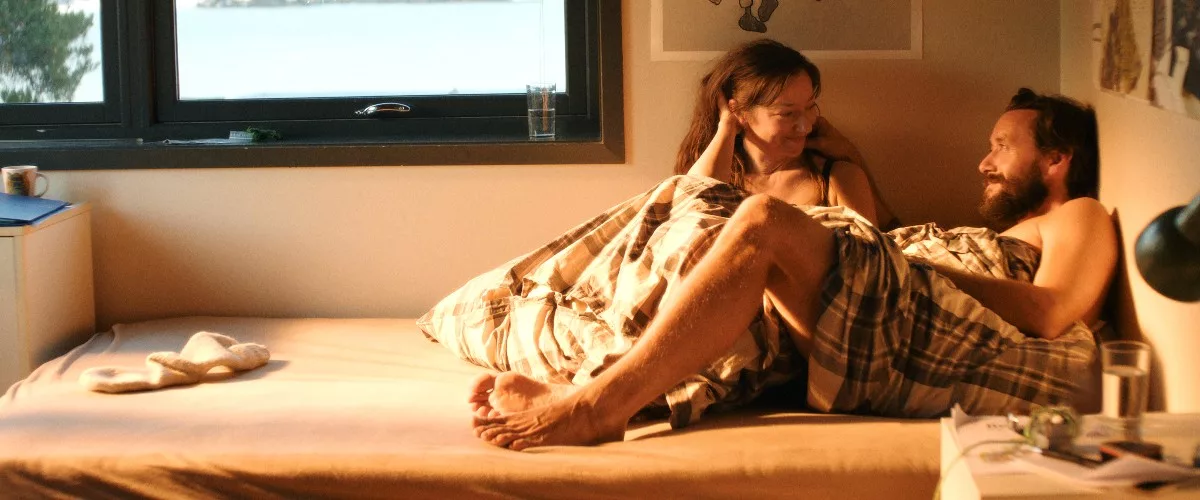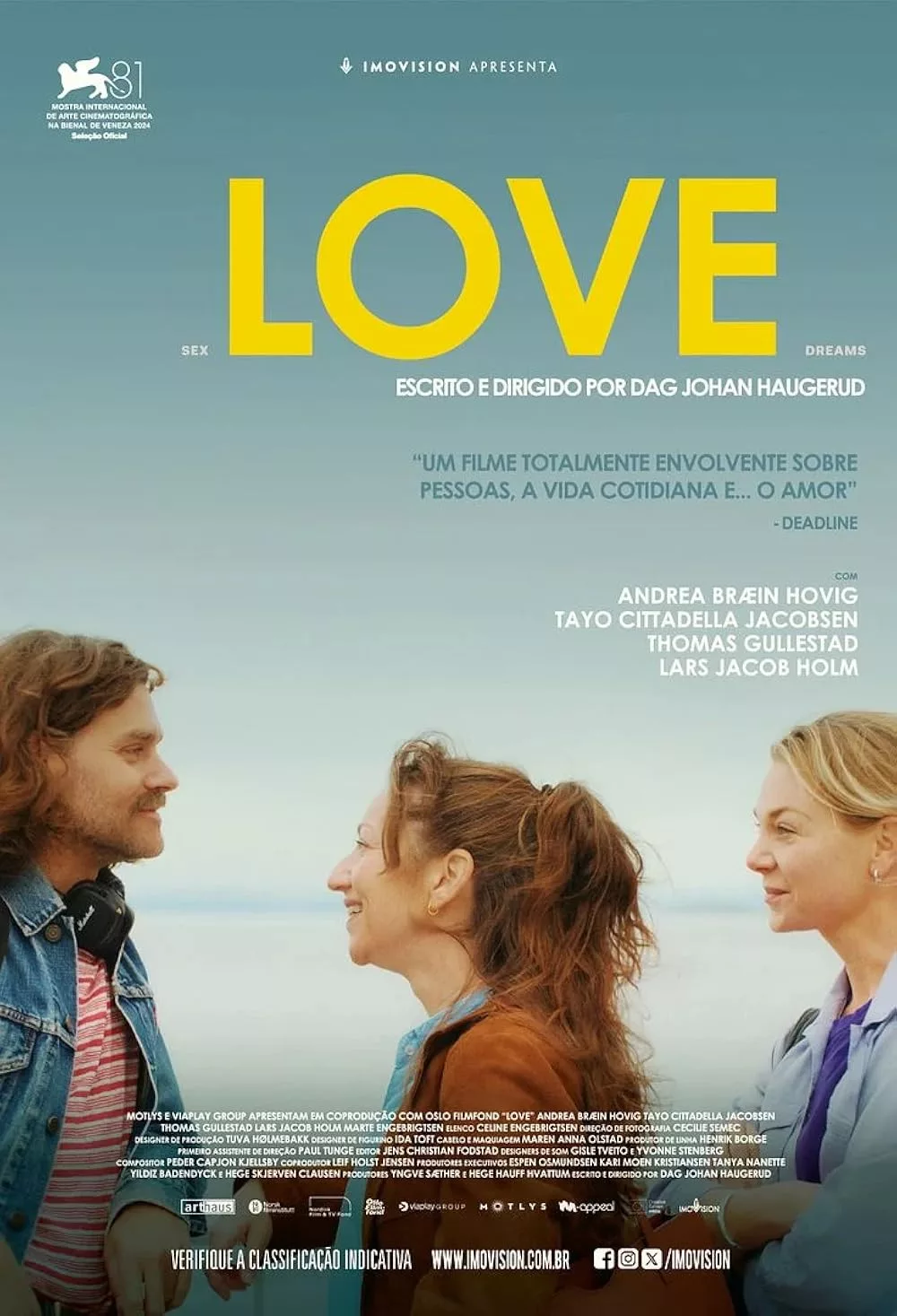It does and it doesn’t seem to matter what order you watch the “Sex Dreams Love” trilogy, Norwegian author turned filmmaker Dag Johan Haugerud’s trio of romantic dramas. “Dreams” was the most recent to debut, but the three narratively unrelated features will be released in varying orders in different countries. “Love” played last in Norway, but it will be the first to screen in America. Putting “Love” first makes sense since it establishes the trilogy’s predominant theme of giving everyone—meaning a variety of singular voices—a chance to be heard and appreciated as they figure out what they want from sex and romance.
“Love” also introduces viewers to a key concept in Haugerud’s three-part tribute to Oslo and its residents: not everybody knows how to define themselves apart from socially entrenched norms based on gender, marital status, or sexual orientation. So in this movie, Haugerud focuses on two adult protagonists who, despite their age and experience, pursue relationships that may not have futures.
Cancer doctor Marianne (Andrea Bræin Hovig) doesn’t know if she wants to pursue divorced dad Ole (Thomas Gullestad) because she’s reluctant to take on a romantic partner with two children. Marianne’s hospital nurse friend Tor (Tayo Cittadella Jacobsen) wants a relationship with cancer patient Björn (Lars Jacob Holm), but also knows that Björn won’t be able to do as much after he has surgery to remove his prostate. Uncertainty defines both protagonists’ relationships, but Haugerud shows solidarity for both characters by letting them talk and listen to their respective partners. Patient, naturalistic dialogue exchanges set the tone for this warm and often moving portion of Haugerud’s trilogy.
Admittedly, some of the complications that arise from Marianne and Tor’s relationships say more about their hang-ups than their respective partners or their circumstances. Marianne’s problems aren’t greatly complicated by Solveig (Marian Saastad Ottesen), Ole’s ex-wife, who lives next door to him, nor is Tor’s job endangered by his interest in one of the hospital’s patients. These issues are raised and, in Solveig’s case, addressed. (Who really cares about Norwegian doctor/patient ethics?) It’s more noteworthy that Haugerud doesn’t resort to hacky plot contrivances to find dramatic tension in “Love,” which mostly concerns the anxiety-stoking and low-key nervy process of getting to know new people.
Marianne’s story, for example, would not have started without Tor’s inspiring example. He speaks frankly and openly about using the gay dating/hookup app Grindr to meet men on the ferry from Oslo to Nesodden. For Tor, being able to look up from his phone and make eye contact with someone like Björn makes all the difference.
Marianne, on the other hand, seems overwhelmed by the process of making a connection, one unflashy exchange at a time. She considers seeing multiple men at once since, but a supplementary hookup with a married man (Morten Svartveit) deflates in a comically sad, but still instructive way. People are rarely built to our specifications and the process of accepting them for who they are usually requires some mutual bargaining.
Haugerud seems to understand the therapeutic value and dramatic potential of following two characters as they air out their preconceived notions about what love and sex could mean given their hang-ups. The ease and the seriousness with which each exchange builds to the suggestion of sex (or further relations) is often charming. “Love” can also be disarmingly funny, like when Solveig tearfully asks Marianne if her insomnia could be a symptom of undiagnosed cancer, or when Marianne’s Tinder date pouts to her, after he admits that he’s married: “I think you ruined this a little.”
Joachim Trier’s Oslo trilogy (including “The Worst Person in the World”) may have understandably set certain expectations for Norwegian slices of life. I was also reminded of Nicole Holofcener’s movies since her dialogue-intensive dramas often place a keen dramatic focus on uneasy, vital, and thrillingly uncertain conversations about romantic and social expectations. “Love” remains distinct, given its unsparing view of people as flawed and not very sure of themselves. Haugerud’s protagonists aren’t righteous, but rather inquisitive and also hyper-aware of how time passes, whether or not we’re ready to move on from one project, or one happiness, or one life to the next.
That said, “Love” makes for an unusual ice-breaker for a three-film conversation piece. Marianne periodically checks in with her civil servant friend Heidi (Marte Engebrigtsen), who struggles to get Oslo’s City Hall to accept her campaign for an inclusive celebration of the city’s democratic values. Heidi’s values, as well as her struggle to compromise, give “Love” a sense of finality, which might be why the movie came out last in Norway. Still, it’ll be interesting to see how the next part of Haugerud’s tribute to Oslo looks after this, knowing that the conversation hasn’t arrived at a hard stop, but a pregnant ellipsis.




















